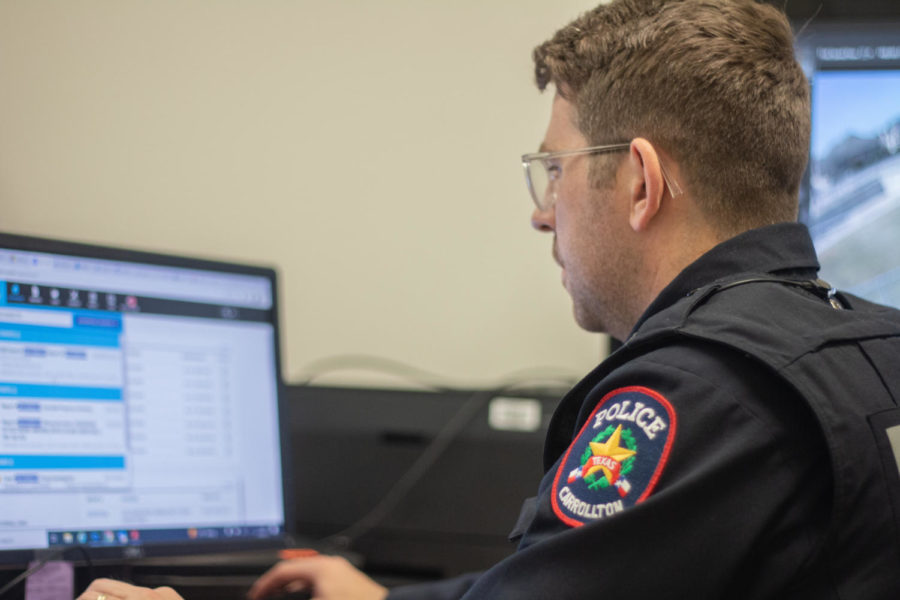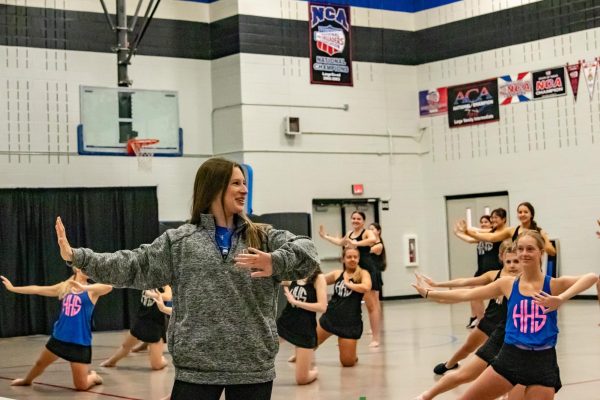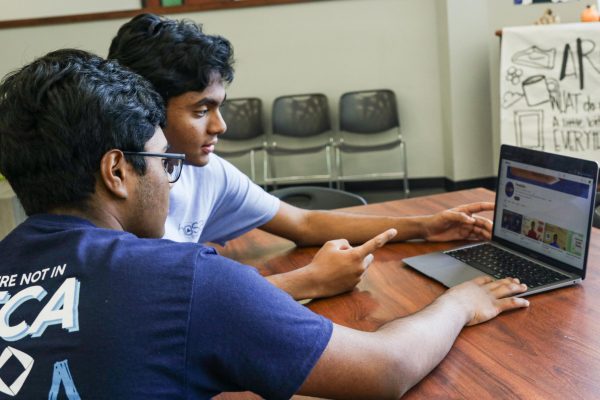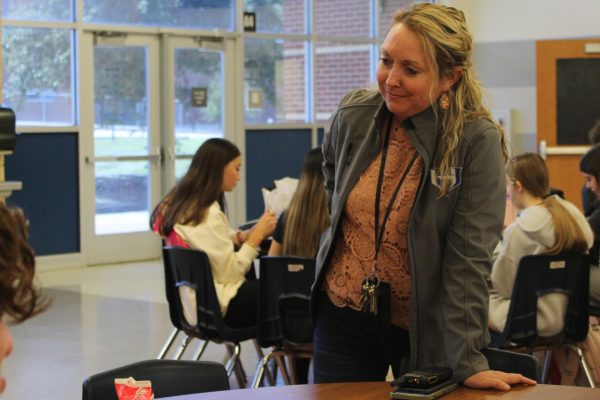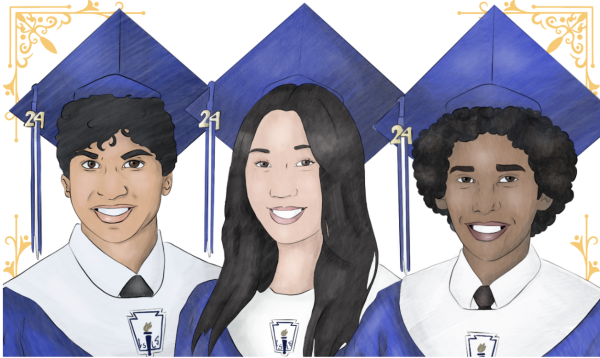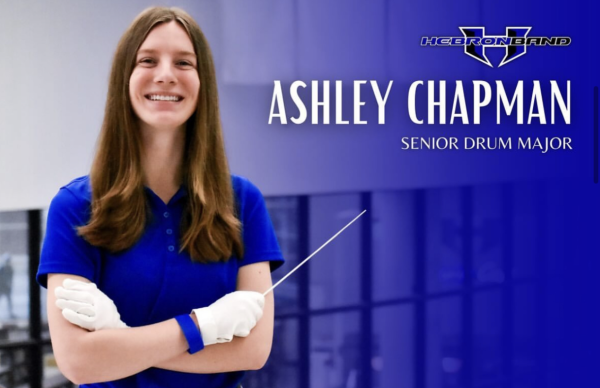On duty
Get to know Hebron’s Student Resource Officers
Student Resource Officers (SROs) are certified law enforcement officers meant to provide security and safety for students and staff. Today, Jan. 15, is SRO awareness day, so here is a look into two of Hebron’s SROs.
Hebron 9 Officer Tanner Low
Officer Tanner Low has been in law enforcement for five years, and this is his first year as an SRO. Low said he loves his job due to its positive and uplifting environment.
“I find [this job] comes very naturally and suits my skills and abilities,” Low said. “The school is a very friendly environment; the kids are optimistic and happy to be here.”
SROs have a variety of responsibilities, ranging from keeping the school safe and secure to informing students and teachers about law enforcement and other safety-related topics.
Low said his day starts around 7:15 a.m. and he begins by working in his office to respond to emails and file leftover paperwork.
Then, he stands outside the building to provide security, as well as greet students and check for IDs. Afterward, he checks in with administration and completes a perimeter door check. The rest of his day is spent by dealing with whatever current problem arises, and making sure he is visible during lunch and passing periods.
“I think initially a lot of students are wary of me,” Low said. “[Students] think, ‘he’s going to rat me out’ or ‘he’s just looking for trouble,’ [but] I’d much rather have positive experiences with students. I just want to get to know people and build a relationship with them, because that’s where you start to make a difference in their lives.”
Low said he decided to become an SRO because he wanted to work with students. He said he believes it is important to have a positive experience with students early on.
“Some of my favorite memories are playing chess with some of the students during lunch,” Low said. “I also like to have snacks and candy in my office, [because] sometimes all [students] need is something to munch on, and that helps their day go a little bit better. It’s something small and meaningful I can provide for them that helps us [get to know each other].”
Main Campus Officer David Lee
Officer David Lee has been in law enforcement for a total of 11 years, and an SRO at Hebron for the past two and a half years. Lee said he has always loved helping people and decided to become an SRO after realizing he wanted to work with students.
Lee said his parents were supportive, but surprised when he decided to join law enforcement. His parents are first-generation immigrants from Korea, where law enforcement was considered a frowned-upon career, so they were a little confused about his choice.
“As first-generation immigrants, they didn’t understand American society or the American police,” Lee said. “None of my other relatives went into [law enforcement] because my family was all about education, like becoming doctors. Every parent wants to see their kid be successful, have lots of money and be happy. I was blessed to have my family support me and my [career choice].”
Lee’s responsibilities range from day-to-day, but his main priority is providing safety and security to the students and staff at Hebron. Whether he is conducting perimeter door checks or monitoring the halls, safety is always No. 1 priority.
“Every day is different,” Lee said. “It could be dead or it could be extremely busy. It ranges from fights, to electronic smoking devices, to drugs and just the craziest things. That’s just part of police work; you can have the same call five times, but they’re all different.”
To become an SRO, Lee had to undergo weeks of state-mandated training. This training taught him to become familiar with juvenile law, while also training him to be equipped to deal with large crisis scenarios, such as active shooters or mental breakdowns.
“People think that I’m here to find trouble,” Lee said. “[My job is] not anything like that. If anything, I’m trying to prevent [trouble] prior to it becoming a larger issue. [My job] is about the genuine aspect of helping people. Sometimes that, unfortunately, translates to receiving a ticket or going to jail; [however,] I try to make that the last resort. I genuinely want [people] to progress from whatever struggles [they] are going through.”
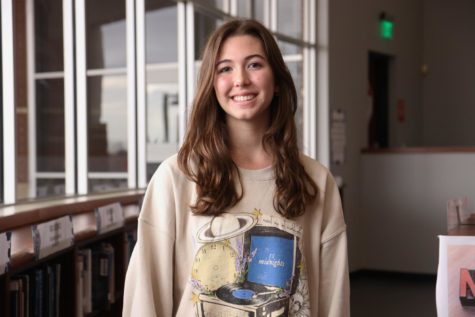
Sophomore Bree Andrews is a reporter and this is her first year on staff. In her free time she enjoys spending too much time on Pinterest, watching cheesy...



